Search
Search Results
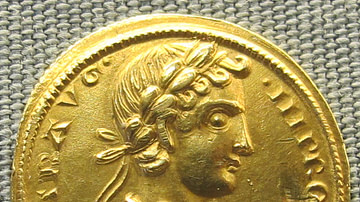
Definition
Frederick II
Frederick II (l. 1194-1250 CE) was the king of Sicily (r. 1198-1250 CE), Germany (r. 1215-1250 CE), Jerusalem (r. 1225-1228 CE), and also reigned supreme as the Holy Roman Emperor (r. 1220-1250 CE). He was born in Jesi in 1194 CE but spent...
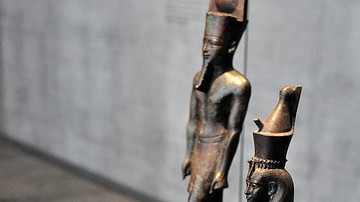
Article
Egyptian Gods - The Complete List
The gods and goddesses of Ancient Egypt were an integral part of the people's everyday lives for over 3,000 years. There were over 2,000 deities in the Egyptian pantheon, many whose names are well known - Isis, Osiris, Horus, Amun, Ra, Hathor...
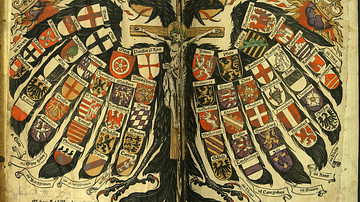
Definition
Holy Roman Empire
The Holy Roman Empire officially lasted from 962 to 1806. It was one of Europe’s largest medieval and early modern states, but its power base was unstable and continually shifting. The Holy Roman Empire was not a unitary state, but a confederation...
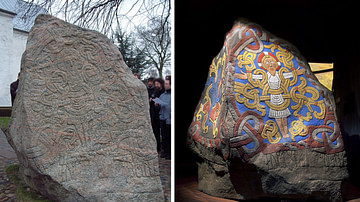
Article
Harald Bluetooth & the Conversion of Denmark
In Scandinavia, Christianity spread due to the support and encouragement of political rulers at the top of the society above all else. Conversion, defined here as the actions taken by kings or clerics to introduce the new religion, did not...
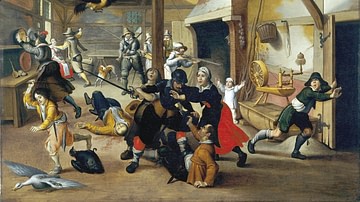
Definition
Thirty Years' War
The Thirty Years’ War (1618-1648) was the last major European conflict informed by religious divisions and one of the most devastating in European history resulting in a death toll of approximately 8 million. Beginning as a local conflict...
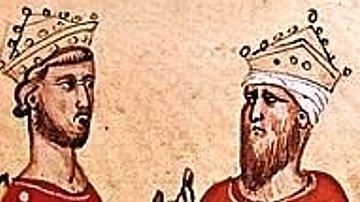
Definition
Sixth Crusade
The Sixth Crusade (1228-1229 CE), which for many historians was merely the delayed final chapter of the unsuccessful Fifth Crusade (1217-1221 CE), finally saw the Holy Roman Emperor Frederick II (r. 1220-1250 CE) arrive with his army in the...
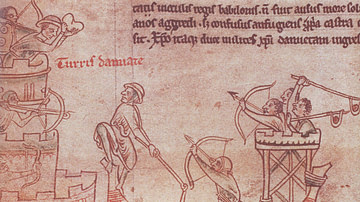
Definition
Fifth Crusade
The Fifth Crusade (1217-1221 CE) was called by Pope Innocent III (r. 1198-1216 CE) with the objective, like previous crusades, of recapturing Jerusalem from Muslim control; only this time the strategy was to weaken the enemy by first attacking...
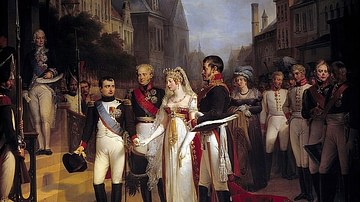
Definition
Treaties of Tilsit
The Treaties of Tilsit were two peace treaties signed in July 1807 by Emperor Napoleon I of France (r. 1804-1814; 1815) and the monarchs of Russia and Prussia in the aftermath of the Battle of Friedland. The treaties ended the War of the...
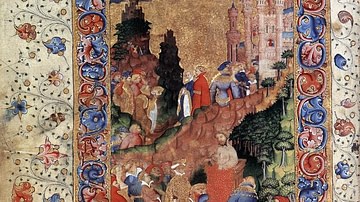
Article
Chaucer's The Book of the Duchess Full Text & Summary
The Book of the Duchess is the first major work of the English poet Geoffrey Chaucer (l. c. 1343-1400 CE), best known for his masterpiece The Canterbury Tales, composed in the last twelve years of his life and left unfinished at his death...
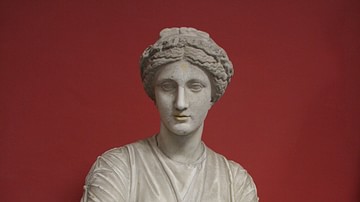
Article
Hesiod on the Birth of the Gods
The Greek poet Hesiod (c. 700 BCE) is most famous for his works Theogony and Works and Days. In this passage from Theogony, Hesiod relates the birth of the gods from cosmic Chaos and follows the lineage through the great Zeus, King of the...